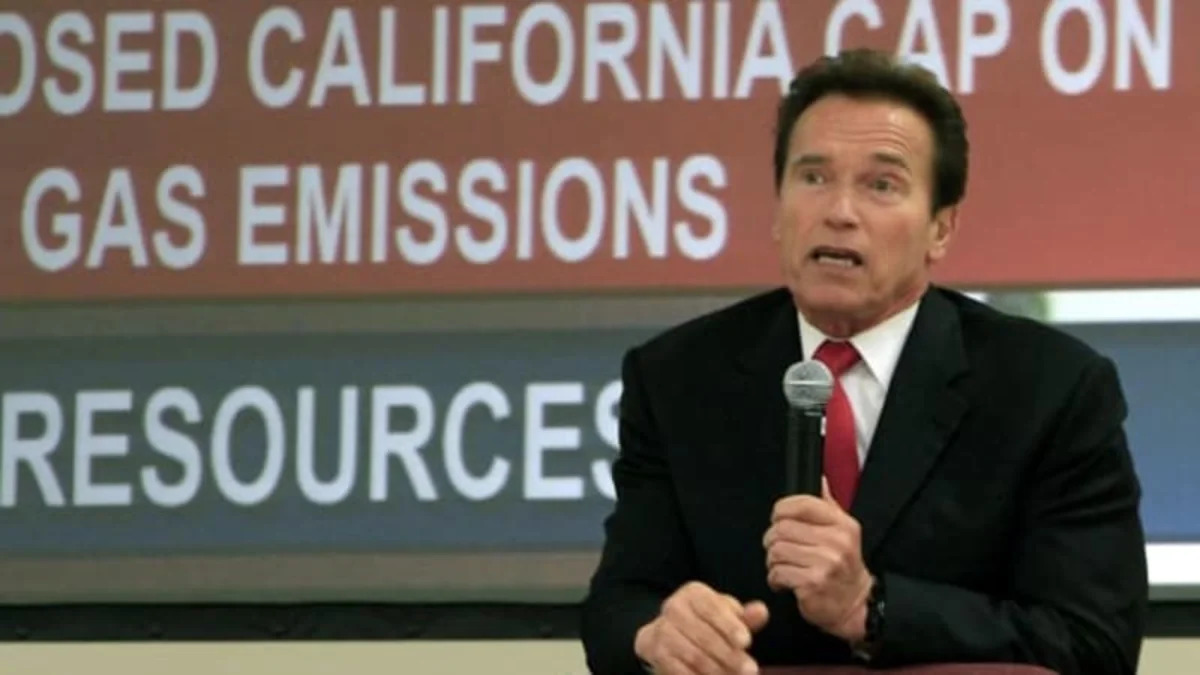You try to do a good thing, but someone always has to come around and say there's a down side. In this case, the good thing is AB 32, also known as California's greenhouse gas emission reduction law, and the potential down side is one that could generate a lot of bad publicity.
First, some background. The idea behind the law was to reverse the climbing trend of emissions in the state, shrinking them down to 1990 levels by 2020. That means, in the end, a "15 percent reduction in greenhouse gas emissions compared to the 'business-as-usual' scenario in 2020 if we did nothing at all," according to the California Air Resources Board (CARB), which is the force behind the law. AB 32 was passed in 2006 and was signed by then-governor Arnold Schwarzenegger. The emission cap for 2013 was set at a level about two percent lower than the emissions that were expected (in 2006) to be in 2012, and AB 32 gets stricter from here. It drops another two percent (roughly) in 2014 and then about three percent every year from 2015 to 2020.
Dave Clegern, CARB's public information officer, says that the reported cost increases are unlikely. "So far," he told AutoblogGreen, "the costs of compliance with AB 32 programs has held to the basic economic model which indicates a possible impact on fuel prices of three-to-five percent over an eight year period. This is less than the rate of inflation."
An overview of AB 32's cap-and-trade provision is available here in PDF and a general state government page on the law is here. You can read more about a proposed alternative (a flat carbon tax) for the gas producers here. Clegern also dismissed the flat tax proposal because, "ARB's mandate under AB 32 is to design programs which reduce greenhouse gas emissions. The emissions cap in the cap-and-trade program ensures verifiable emission reductions each year. The carbon tax discussed in the [AP] article cannot ensure any emissions reduction."
First, some background. The idea behind the law was to reverse the climbing trend of emissions in the state, shrinking them down to 1990 levels by 2020. That means, in the end, a "15 percent reduction in greenhouse gas emissions compared to the 'business-as-usual' scenario in 2020 if we did nothing at all," according to the California Air Resources Board (CARB), which is the force behind the law. AB 32 was passed in 2006 and was signed by then-governor Arnold Schwarzenegger. The emission cap for 2013 was set at a level about two percent lower than the emissions that were expected (in 2006) to be in 2012, and AB 32 gets stricter from here. It drops another two percent (roughly) in 2014 and then about three percent every year from 2015 to 2020.
Since there is a cap on overall emissions, the affected industries can trade emissions credits as one way to comply. Or they can conduct cleaner operations. In 2013, the law took effect for electric utilities and large industrial facilities (which have already racked up $1.5 billion in pollution permit fees), and it will kick in next year for "distributors of transportation, natural gas and other fuels." As 2015 approaches, the oil industry is warning that the increased hassle of AB 32 will add at least 12 cents to the cost of a gallon of gas in California. State regulators claim the increase could be anywhere from negligible to over 10 cents a gallon, the AP says. The current average price in the state today is about $3.90. CARB chair Mary Nichols told the AP that she doesn't believe the oil companies when they warn the public about higher gas prices. "It would appear to be some deliberate measure on their part if there were to be a sudden rise in [fuel] prices on January 1," she said.CARB chair Mary Nichols said she doesn't believe the oil companies.
Dave Clegern, CARB's public information officer, says that the reported cost increases are unlikely. "So far," he told AutoblogGreen, "the costs of compliance with AB 32 programs has held to the basic economic model which indicates a possible impact on fuel prices of three-to-five percent over an eight year period. This is less than the rate of inflation."
An overview of AB 32's cap-and-trade provision is available here in PDF and a general state government page on the law is here. You can read more about a proposed alternative (a flat carbon tax) for the gas producers here. Clegern also dismissed the flat tax proposal because, "ARB's mandate under AB 32 is to design programs which reduce greenhouse gas emissions. The emissions cap in the cap-and-trade program ensures verifiable emission reductions each year. The carbon tax discussed in the [AP] article cannot ensure any emissions reduction."


Sign in to post
Please sign in to leave a comment.
Continue